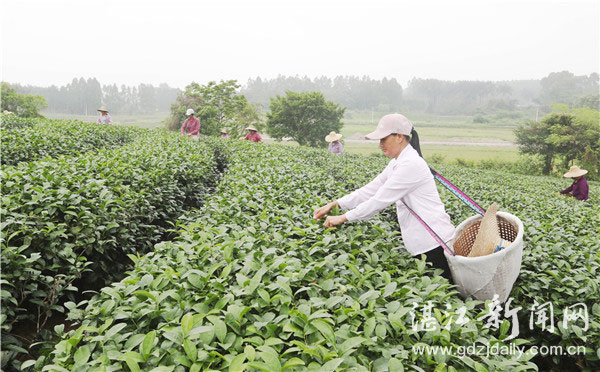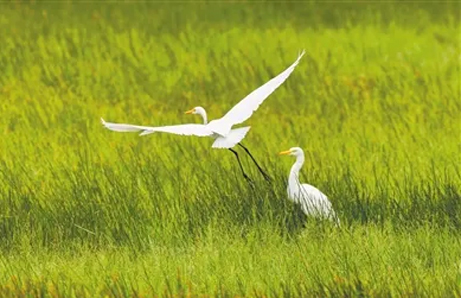Home> Biz Updates
Zhanjiang spring tea low in quantity, but high in quality
The yield of spring tea in Zhanjiang this year is predicted to decrease by about 30 to 35 percent compared with the same period in previous years, but the tea quality is improved.
The decline of the spring tea output is a result of a variety of reasons. The lack of rain last year caused the death of some of the tea trees in Zhanjiang, and the remaining tea trees sprouted less this year due to the drought.
However, the less tea buds there are, the more nutrition each bud can get. Coupled with enough rainwater this spring, this year's spring tea in Zhanjiang has a relatively high quality.
"The quality of this year's spring tea is particularly high, so the sales are also very good," said Xiao Yade, vice president of a tea professional cooperative in Zhanjiang. "Although the tea is still being processed in the factory, it has already been reserved in advance."

Farmers pick tea at the tea garden in Houtang village, Liangdong town in Zhanjiang on April 18. [Photo by Li Jiabin/gdzjdaily.com.cn]
Sales of tea in Zhanjiang have also been affected by the outbreak of the novel coronavirus (COVID-19) pneumonia. Problems like increasing operation costs, unsaleable tea, and the low selling price occurred in January for tea enterprises in Zhanjiang.
These enterprises took measures like live streaming and utilizing e-commerce platforms to increase their tea sales and achieved some positive results. The city's tea sales in March reached about 70 percent of the same period last year.
"The tea industry in Zhanjiang has been affected by the COVID-19 epidemic, but the market demand is always there," said Xiao Guangxian, standing vice chairman of the Zhanjiang Tea Association. "This year's spring tea in Zhanjiang has particularly high quality. I believe tea sales will be better in April, and I'm confident about the prospects for the tea industry this year."

 Print
Print Mail
Mail 5G construction supports Zhanjiang's high-quality development
5G construction supports Zhanjiang's high-quality development
 Acting mayor inspects project construction in Xuwen, Leizhou
Acting mayor inspects project construction in Xuwen, Leizhou Zhanjiang island an "egret paradise"
Zhanjiang island an "egret paradise"  Dancing egrets add vitality to Xiashan
Dancing egrets add vitality to Xiashan